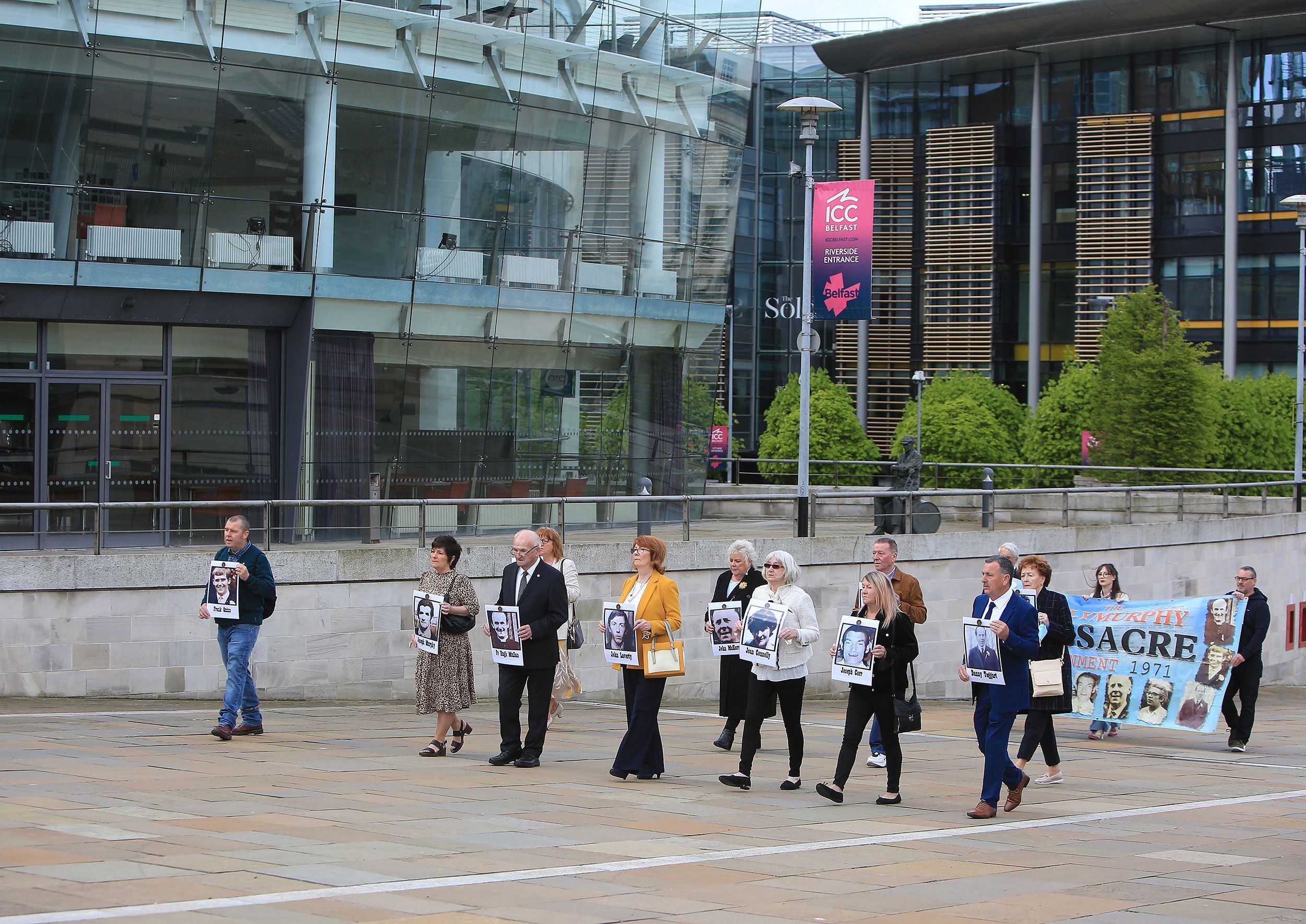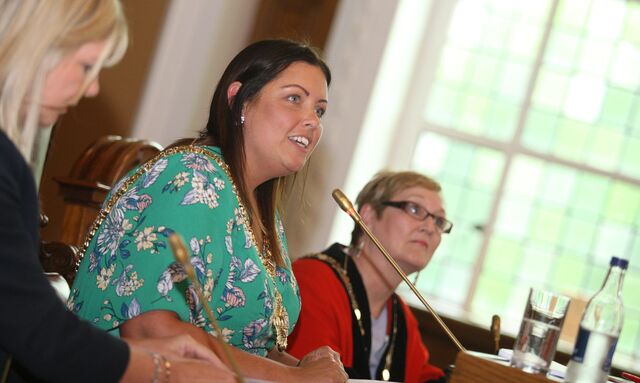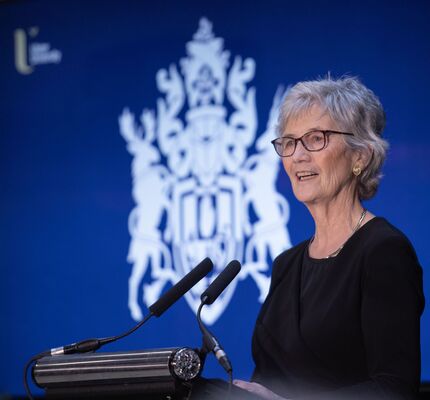MAYBE Justice Lynch felt he was acknowledging the Bloody Sunday families when he spoke of the Parachute Regiment’s actions in Derry 1972 being a source of shame. However, referring to the “proud reputation” of the regiment denied the reality of the experience of thousands who met the Parachute Regiment in Ireland.
Maybe Gavin Robinson thought he was playing a veterans' card when he glorified the Parachute Regiment in his kneejerk tweet after Soldier F was found not guilty, but what he did was to crassly compound the harm of victims of state violence and repeat the denial of their experience.
Because that is what impunity does. It leaves the violations unaccounted for, the victims facing a denial and censorship of their experience, and the rest of us with a distorted historical record.
The Parachute Regiment is not a proud regiment in Ireland, or anywhere else. There are men and women across the North who live with the visceral pain caused by its actions, and not just violent murder.
The Parachute Regiment used systemic violence as it carried out British military policy. It was responsible for the murders of civilian men, women and children in all of its tours in the North of Ireland. Murders that remain unaccounted for.
Bloody Sunday was, according to British Prime Minister David Cameron, “Unjustified and unjustifiable”. The accountability gap between that statement and prosecutions means that some will pretend that the actions that day were defensible.
Before they went to Derry the Parachute Regiment ran amok in Ballymurphy. The accountability gap in 1971 meant that Bloody Sunday was possible the following winter. The generational impact of the murders of Ballymurphy citizens could be heard at the inquest in Laganside Courthouse.
Such was the intensity of their violence Ian Paisley called for its removal from the Shankill Road in 1971. A Paddy was a Paddy to this, a regiment Justice Lynch called “valiant”.
Its “reputation” was also sullied with systemic and ferocious brutality in raids, arrests and interrogations. The late Terry Laverty spoke of how he was used as a human sandbag by members of the Parachute Regiment on the night his brother John was murdered by them.
Some of the men arrested were subjected to systemic sexual violence. Batons, hoses and barbed wire was inserted into men’s rectums. There was little chance for justice for those men when those they buried were not considered worthy of the rule of law.
The propaganda has always defended the British army as the truth tellers and their victims as the liars. Just in case their squaddies might mess that up. the Royal Military Police carried out “investigations”, the RUC carried out perfunctory fact-finding exercises and the Historic Enquiries Team shuffled papers illegally in investigatory pretence. They are so terrified that they might tell the truth they keep them away from open courts.
The British government in its proposals for dealing with the past might consider those previous cover-up processes as sufficient to invoke their measures preventing veterans from “reinvestigation”. If they do they have introduced amnesty via the backdoor. Or rather, it has secured the ongoing de facto amnesty for state killings.
Reopened inquests and inquiries are rewriting history. They are exposing state lies and state murder and giving lie to the myth that the British army has a “proud reputation”. But accountability is outstanding and required.







